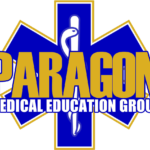Podcast: Play in new window | Download
Subscribe: Apple Podcasts | | More
 We start off today’s episode discussing recent projects with our Disaster Weather Expert, Kyle Nelson. He recently engaged in a training exercise as an avalanche search and rescue dog handler where they introduced the dogs to riding in a helicopter and learning operations around aviation assets.
We start off today’s episode discussing recent projects with our Disaster Weather Expert, Kyle Nelson. He recently engaged in a training exercise as an avalanche search and rescue dog handler where they introduced the dogs to riding in a helicopter and learning operations around aviation assets.
Then Henry Mitchell joined the show and we switched gears to discuss emergency planning and management of diverse community resources to prepare to respond to emergencies and disaster situations. Henry is Deputy Director Office of Emergency Preparedness Response in the Colorado Department of Public Health and Environment. He holds an MS Emergency Response and Biosecurity and specialized for a time in Disaster Behavioral Health.
Henry dives into the necessary needs when bringing together different groups and response organizations like public health assets, emergency response organizations, and community volunteers. Planning ahead can help make future events run more smoothly.
Kyle introduced the acronym CMIST which revolves around response to help diverse and special needs communities. CMIST stands for:
- Communication
- Maintaining health
- Independence
- Support, Safety, and Self-determination
- Transportation
We also discuss the need for constructive or creative outlets away from our work in emergency response. Henry uses music and participation in theater and dramatic endeavors. We point out the necessity for having positive ways to work out the vicarious trauma we experience during work in the field.
Scroll down for Podcast Discussion Summary
 Thank you as always to Paragon Medical Education Group for their long-term support of the Disaster Podcast. Dr. Joe Holley and the team at Paragon continue to provide excellent and customized disaster response training to jurisdictions around the U.S. and internationally as well.
Thank you as always to Paragon Medical Education Group for their long-term support of the Disaster Podcast. Dr. Joe Holley and the team at Paragon continue to provide excellent and customized disaster response training to jurisdictions around the U.S. and internationally as well.
Podcast Discussion Summary
Avalanche Training and Emergency Management
Kyle shared his recent experience at the International Association of Emergency Managers Conference in Colorado Springs, where he met Becky DePodwin face-to-face for the first time. He also discussed his involvement in dog avalanche training and search and rescue operations, including a recent helicopter training session.
Sam introduced Henry Mitchell, who was recommended by Kyle, as the deputy director of the Office of Emergency Preparedness Response in the Colorado Department of Public Health and Environment. Henry shared his background in disaster, behavioral health, and emergency management.
Emergency Operation Planning and Coordination
Sam, Henry, and Jamie discussed their experiences and expertise in emergency operation planning. Henry shared his passion for plan writing and reviewing, emphasizing the importance of understanding the assets and capabilities of different groups involved in a response or operational action. He also highlighted the value of pre-planning and coordination with various agencies to ensure effective collaboration. The conversation also touched on the importance of reviewing plans to identify what worked and what didn’t, and how to improve for future situations. Additionally, they briefly discussed climate adaptation planning from a public health perspective.
Public Health in Disaster Response
Henry discussed the importance of public health in disaster response, particularly in relation to extreme heat. He proposed strategies to bolster community preparedness and response efforts, including utilizing federal partners to monitor potential heat waves and forming a communications plan to educate the community. He also highlighted the need to focus on vulnerable populations, such as residents of long-term care facilities, the elderly, and those with certain medical conditions or medications that make them more susceptible to heat. Sam agreed with Henry’s thoughts.
Emergency Planning and Preparedness
Kyle discussed the importance of planning and preparedness for emergencies, using the CMIST memory tool as an example. He emphasized the need for individuals and communities to be prepared for disasters, especially in the face of a changing climate. Jamie then asked Henry about his approach to helping local jurisdictions with their planning needs. Henry explained that he uses his experience as a local emergency manager to understand the specific needs of each jurisdiction and to help them plan effectively. He also highlighted the importance of cross-pollination of ideas and resources from other jurisdictions and levels of government.
Sam then asked Henry about his training in nonviolent de-escalation, which Henry explained was useful in facilitating community meetings and responding to disasters. The discussion concluded with Sam asking Henry about increasing community preparedness at the individual and family level, to which Henry responded that even a small increase in preparedness could significantly improve response times.
Preparing for Disasters and Support
In the meeting, Henry discussed the importance of being prepared for disasters, emphasizing the need for people to have essential items like extra clothing, food, and water in their cars. He also highlighted the importance of having a backup plan for important documents and banking information. Henry shared his personal experiences with disaster response and how it has shaped his views on preparedness.
He also mentioned his passion for theater and DJing as outlets for stress and trauma. Jamie and Sam agreed with Henry’s points and discussed the importance of peer support programs for responders. They also thanked Dr. Joe Holley for his continued support of the podcast.
 We start off today’s episode discussing recent projects with our Disaster Weather Expert, Kyle Nelson. He recently engaged in a training exercise as an avalanche search and rescue dog handler where they introduced the dogs to riding in a helicopter and learning operations around aviation assets.
We start off today’s episode discussing recent projects with our Disaster Weather Expert, Kyle Nelson. He recently engaged in a training exercise as an avalanche search and rescue dog handler where they introduced the dogs to riding in a helicopter and learning operations around aviation assets. Thank you as always to Paragon Medical Education Group for their long-term support of the Disaster Podcast. Dr. Joe Holley and the team at Paragon continue to provide excellent and customized disaster response training to jurisdictions around the U.S. and internationally as well.
Thank you as always to Paragon Medical Education Group for their long-term support of the Disaster Podcast. Dr. Joe Holley and the team at Paragon continue to provide excellent and customized disaster response training to jurisdictions around the U.S. and internationally as well.

Recent Comments